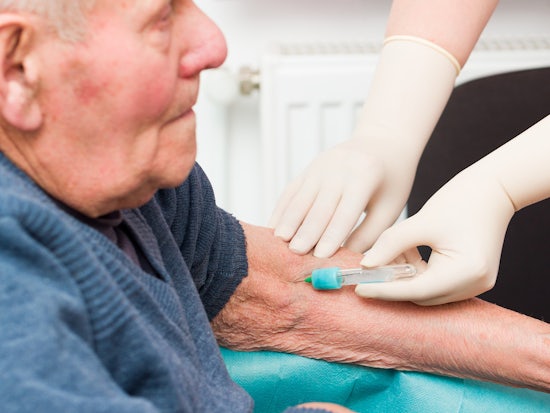Blood test bringing hope to those at risk of Alzheimer’s
Extensive international collaboration is behind an exciting new breakthrough into the identification of Alzheimer’s disease which could see a blood test take the place of often invasive and expensive procedures when testing those at risk.

A blood test could soon take the place of invasive procedures in testing for Alzheimer’s disease (Source: Shutterstock)
The test, developed by Doctor Koichi Tanaka, is part of a 30 year journey and has had its success proven by Australian scientists at the Florey Institute and Japanese researchers at the National Centre for Geriatrics and Gerontology (NCGG), with results showing the blood test to have a “greater than 90 percent accuracy at predicting people at risk of Alzheimer’s”.
Up until now, the only ways to measure the small abnormal protein in the brain called beta-amyloid, an essential hallmark of Alzheimer’s, was through brain scans with costly radioactive tracers, or analysing spinal fluid taken via lumbar puncture.
Both testing methods have been labelled expensive and invasive, and are also generally only available in a research setting.
Professor Colin Masters of the Florey Institute of Neuroscience and Mental Health, and the University of Melbourne, co-led the research and says both current methods of testing are labelled “expensive and invasive”, also noting that they are generally only available in a research setting.
He adds the work done to prove the blood tests validity offers a “promising breakthrough” in being able to identify the relevant peptides.
“This test will help detect if people are on the pathway to Alzheimer’s or if they are symptomatic, it can suggest that there are other causes – it may even suggest how quickly someone could deteriorate,” Professor Masters explains.
“We have been working on this blood test since 1989… it’s a 30 year odessey and now we can finally say we have a high performing blood test which, from my point of view, is a major achievement.”
“This new test has the potential to eventually disrupt the expensive and invasive scanning and spinal fluid technologies,” he explains.
“In the first instance, however, it will be an invaluable tool in increasing the speed of screening potential patients for new drug trials.”
Professor Katshiko Yanagisawa, Director-general of Research Institute at NCGG further backed up the potential of the blood test saying the “study demonstrates the high accuracy, reliability and reproducibility of this blood test, as it was successfully validated in two independent large datasets from Japan and Australia”.
Professor Masters says the test needs to be “scaled up” – adding that this is the next stage of the trial.
“At the moment the test is only being performed at Shimadzu Corporation,” he says.
“They are confident that they will be able to scale up the test and make it more widely available in the next 12 months.”











![The new Aged Care Act exposure draft is slated for release in December of 2023, but advocates hope to see it rolled out on January 1, 2024. [Source: Shutterstock]](https://agedcareguide-assets.imgix.net/news/articles/wp/agedcareact__0811.jpg?fm=pjpg&w=520&format=auto&q=65)












Comments